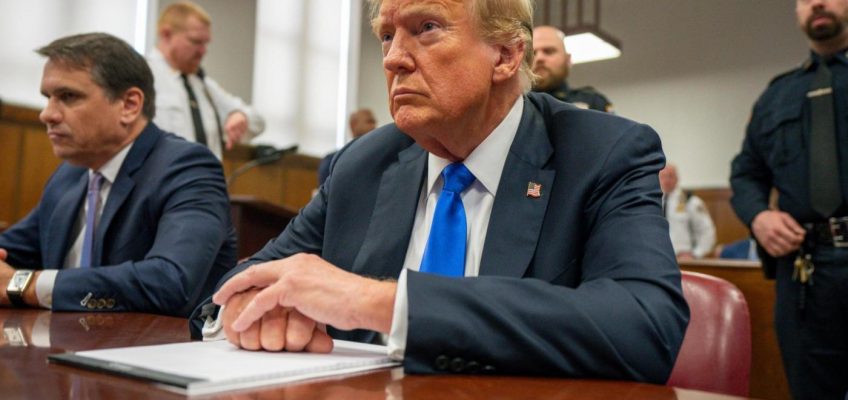By MICHAEL R. SISAK and JENNIFER PELTZ
NEW YORK (AP) — In an extraordinary turn, a judge Friday set President-elect Donald Trump’s sentencing in his hush money case for Jan. 10 — little over a week before he’s due to return to the White House — but promised not to jail him.
Related Articles
New Majority Leader Thune kicks off Senate session with pledge to preserve filibuster
‘At this point, I have no hope’: Injured officers, Democrats still waiting for Jan. 6 plaque
Religious landscape of new Congress features noticeable partisan differences
House Republicans look to tee up immigration bills
Biden’s final actions as president leave some transgender people feeling unsupported
Judge Juan M. Merchan, who presided over Trump’s trial, signaled in a written decision that he’d sentence the former and future president to what’s known as a conditional discharge, in which a case gets dismissed if a defendant avoids rearrest.
The development marks yet another twist in the singular case.
Trump was convicted in May of 34 counts of falsifying business records. They involved an alleged scheme to hide a hush money payment to porn actor Stormy Daniels in the last weeks of Trump’s first campaign in 2016. The payout was made to keep her from publicizing claims she’d had sex with the married Trump years earlier. He says that her story is false and that he did nothing wrong.
After Trump’s Nov. 5 election, Merchan halted proceedings and indefinitely postponed the sentencing so the defense and prosecution could weigh in on the future of the case.
Trump’s lawyers urged Merchan to toss it. They said it would otherwise pose unconstitutional “disruptions” to the incoming president’s ability to run the country.
Prosecutors acknowledged there should be some accommodation for his upcoming presidency, but they insisted the conviction should stand.
They suggested various options, such as freezing the case during his term or guaranteeing him a no-jail sentence. They also proposed closing the case while formally noting both his conviction and his undecided appeal — a novel idea drawn from what some state courts do when criminal defendants die while appealing their cases.
Trump takes office Jan. 20.


Leave a Reply